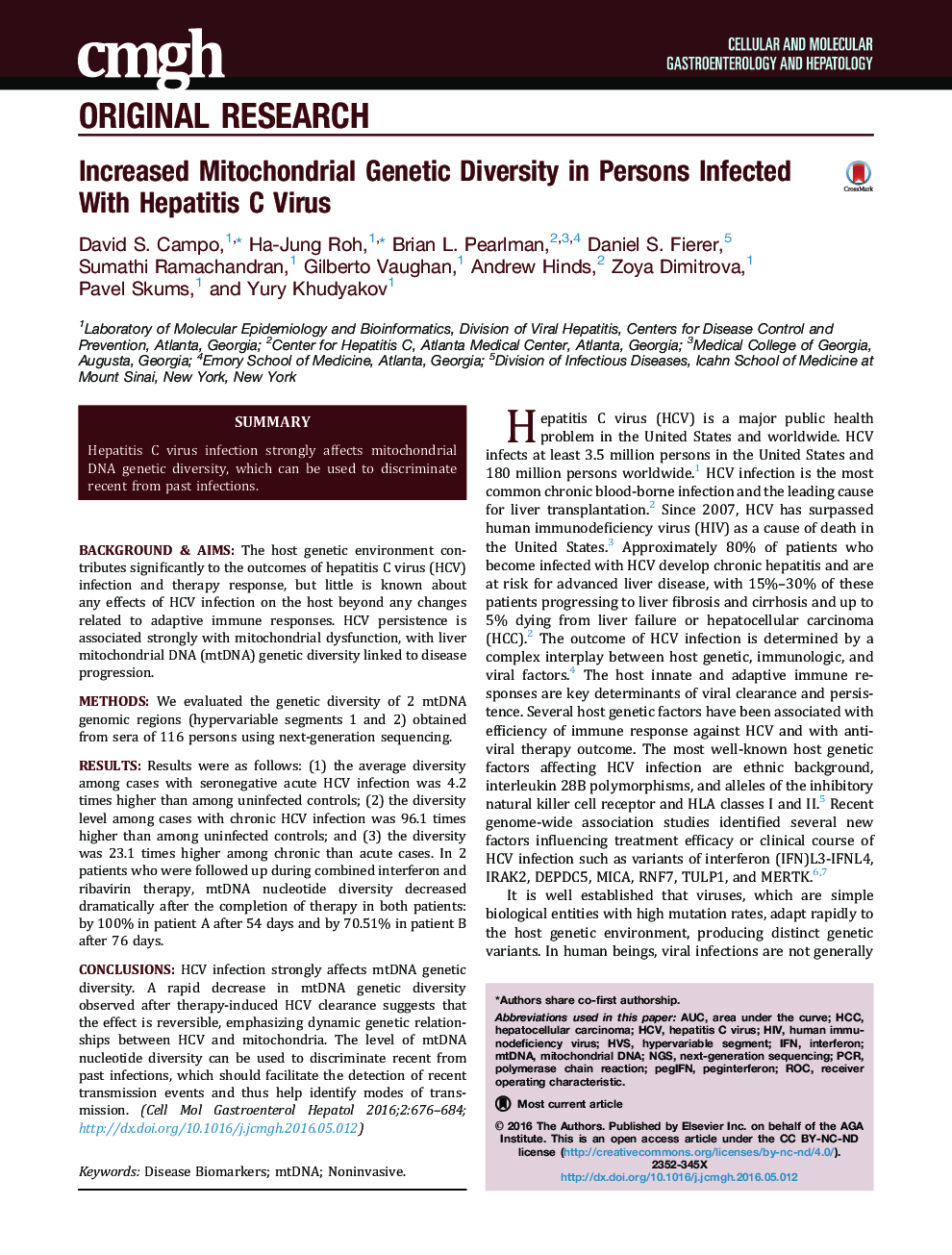| Article ID | Journal | Published Year | Pages | File Type |
|---|---|---|---|---|
| 5517316 | CMGH Cellular and Molecular Gastroenterology and Hepatology | 2016 | 9 Pages |
Background & AimsThe host genetic environment contributes significantly to the outcomes of hepatitis C virus (HCV) infection and therapy response, but little is known about any effects of HCV infection on the host beyond any changes related to adaptive immune responses. HCV persistence is associated strongly with mitochondrial dysfunction, with liver mitochondrial DNA (mtDNA) genetic diversity linked to disease progression.MethodsWe evaluated the genetic diversity of 2 mtDNA genomic regions (hypervariable segments 1 and 2) obtained from sera of 116 persons using next-generation sequencing.ResultsResults were as follows: (1) the average diversity among cases with seronegative acute HCV infection was 4.2 times higher than among uninfected controls; (2) the diversity level among cases with chronic HCV infection was 96.1 times higher than among uninfected controls; and (3) the diversity was 23.1 times higher among chronic than acute cases. In 2 patients who were followed up during combined interferon and ribavirin therapy, mtDNA nucleotide diversity decreased dramatically after the completion of therapy in both patients: by 100% in patient A after 54 days and by 70.51% in patient B after 76 days.ConclusionsHCV infection strongly affects mtDNA genetic diversity. A rapid decrease in mtDNA genetic diversity observed after therapy-induced HCV clearance suggests that the effect is reversible, emphasizing dynamic genetic relationships between HCV and mitochondria. The level of mtDNA nucleotide diversity can be used to discriminate recent from past infections, which should facilitate the detection of recent transmission events and thus help identify modes of transmission.
